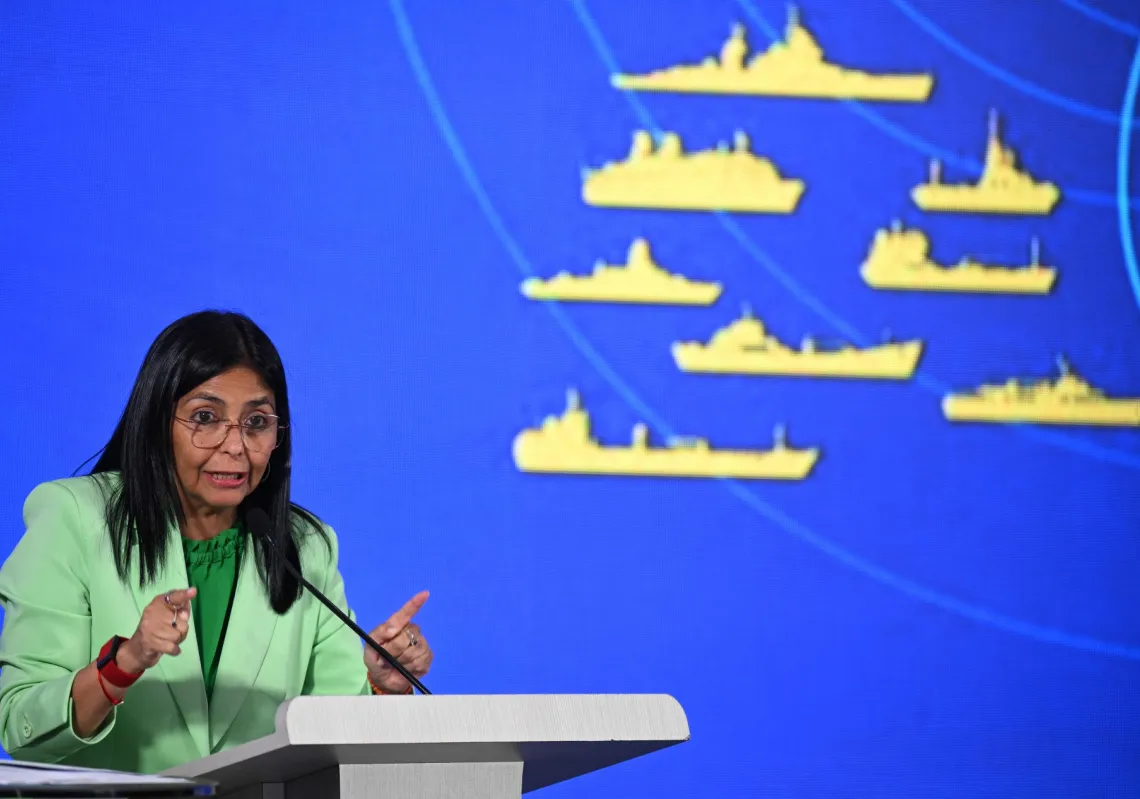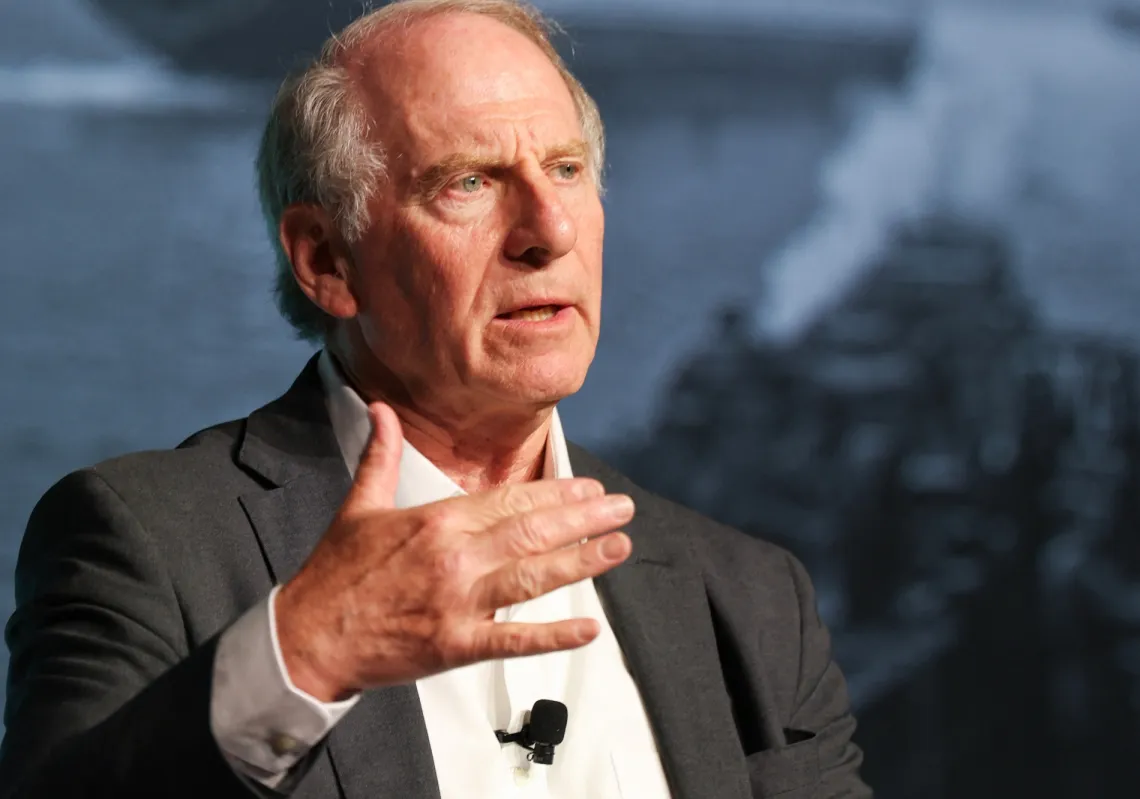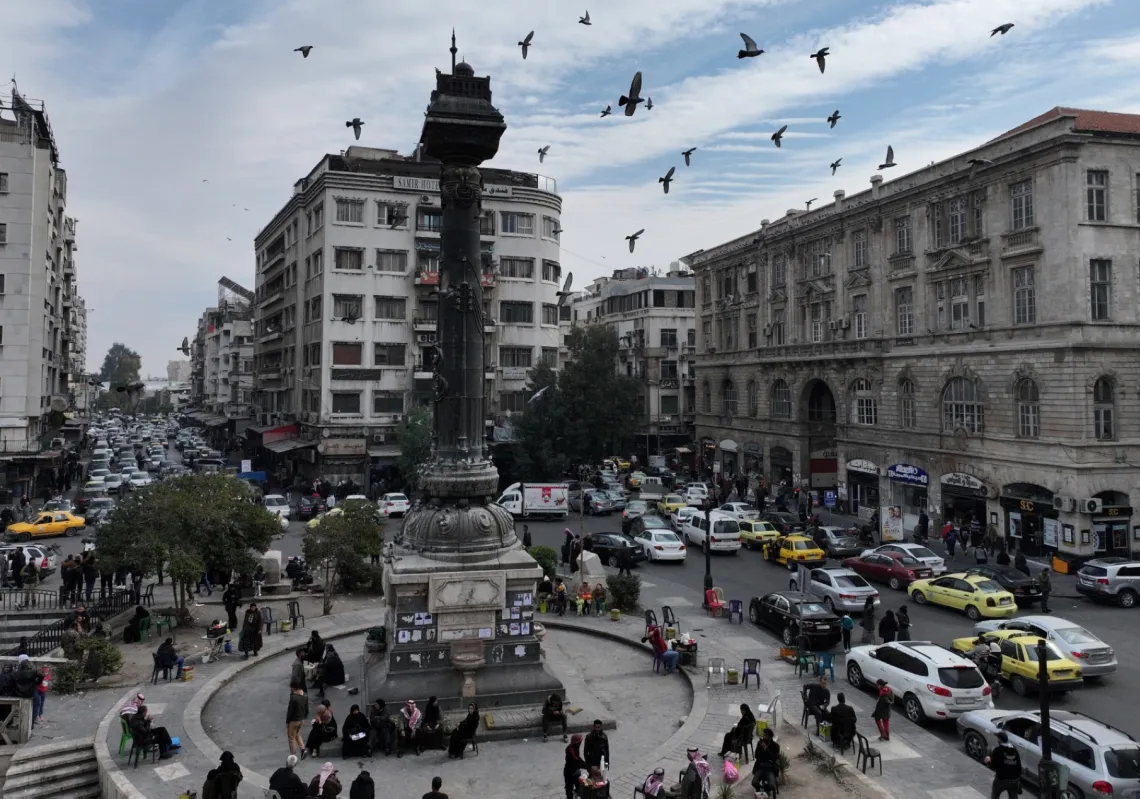Ambassador Chas Freeman is an American diplomat, author and writer. Most notably, he served as the United State’s Ambassador to Saudi Arabia from 1989 until 1992, during which he dealt with the Gulf War. Ambassador Freeman has also served for the State and Defence departments in various capacities, including acting as the main interpreter for Richard Nixon’s 1972 visit to China. He now serves as president of the Middle East Policy Council, co-chair of the U.S. China Policy Foundation, vice-chair of the Atlantic Council, and Chairman of Projects International.
The Majalla: As the former Ambassador to Saudi Arabia, how have US-Saudi relations evolved since 9/11?
Well I think they hit a very low point just before 9/11, at that time differences over the absence of American engagement in any peace process between the Palestinians and Israelis made US-Saudi relations very frosty. Then Crown Prince Abdullah communicated to President Bush that we might have to come to a parting of ways. 9/11, however, ended by cementing cooperation and a new relationship, although it took a while for that to work out. This cooperation was in the counterterrorism area. However, after the 2003 bombings the Saudis were more willing to co-operate with the United States on that issue. Since then, however, Saudi Arabia has been remarkably successful in its program to re-educate terrorists, deter people from becoming terrorists and to round up those who do. This aspect of the Saudi-American relationship is a new one.
The traditional elements of the relationship – cooperation on energy matters and the special relationship – eroded quite badly on the eve of the American invasion of Iraq. Saudi Aramco altered its pricing formula for oil and this led to an immediate drop of sales to the US and a raise in the sale of oil to China. This was an expression of disapproval on behalf of Saudi Arabia towards the policy the US was following and it signalled a much less special relationship than one we had in the past.
Traditionally we cooperated on various foreign policy projects. The most well known of which is probably the expulsion of the Soviet Union from Afghanistan — which was very much a joint venture between the US and Saudi Arabia, working through Pakistan, and with the assistance of China as well as other Arab countries. We haven’t had that kind of cooperation in some time, and it wasn’t until the Obama administration was elected that the US resumed its efforts to mediate peace between the Palestinians and the Israelis. So the relationship between the two countries has changed since 9/11, with the one bright spot being cooperation against terrorism, while other areas lack the vigour they had before 2001.
The Majalla: Does Saudi Arabia’s growing relationship with countries like China, Russia and India create a tension in its relationship with the US?
From the Saudi point of view, after 9/11 and the changes in the relationship that I began to describe – which include also the end of Saudi Arabia’s role as the financial backer for America’s foreign policy in the Middle East –Saudi Arabia decided it was in its interest to diversify its relations. So it has been trying to establish, not alternatives to the US, but offsetting relationships with countries like China and India, and Brazil in South America. They have also been looking towards traditional friends in Europe and North East Asia, like Japan and Korea. They also have a new relationship with Russia. So Saudi Arabia is trying to reduce what it came to conclude was overdependence on the United States. And I think this is an intelligent and entirely understandable approach, which certainly Americans shouldn’t object to.
There are some that object to it, for a very long time there was a tendency in the US to take Saudi Arabia for granted. It’s never a good idea in any marriage to take your spouse for granted; they may wander off in a direction you don’t like.
The Majalla: What role can Saudi Arabia and other Gulf States play in the stabilization of Afghanistan?
I think potentially there is a great deal that can be done. The UAE actually has a small military group in Afghanistan as part of the coalition there. I think Saudi Arabia could be engaged in helping to stabilize Pakistan, and to provide a reformed curriculum for the schools that Saudi money builds in the border area among the Pashtuns which have been captured by militant Muslim extremists.
Since the public school system has collapsed in that area, parents who want to give their children an education have no alternative other than to send their children to academies that are teaching a set of religious doctrines that many people find objectionable, including many Saudis. It is possible to have a cooperation on that issue, but we have not as of yet.
Also, as an institution the Gulf Cooperation Council, is much less than the sum of its parts, it’s fallen far short of its potential for many reasons. It isn’t an effective collective defence organization. It has been unable so far to form a common currency or a real common market, and it does not coordinate security issues effectively.
The Majalla: Do you think Saudi Arabia’s history in Afghanistan affects its willingness to participate in stabilizing the country?
I think Saudi Arabia has a lot of credibility with the ex-mujahideen, some of which are in the Taliban today. Saudi Arabia is therefore in a position to play a very positive role, quite welcome by many, certainly Afghanistan and the adjacent area of Pakistan. These areas need outside help, and Saudi Arabia could provide it if it worked with the US and others – Saudi Arabia would be an Islamic face that would make that assistance more acceptable.
The Majalla: How do you evaluate Iraq’s prospects? Are trends in the relationship between the growing loyalties of security forces to political parties significantly detrimental to its future stability?
I think security in Iraq has been very political from the start. What the United States inadvertently did in Iraq was not to change the regime but destroy the state and create anarchy from which Iraqis are only now emerging. But as a result of that anarchy, various sectarian elements in Iraq, which have been non-violent in the past, are now violent. The situation resulted in a civil war between Sunni and Shii, with the Kurds in their own special category. Iraq is now very divided and essentially under Shii domination, which is not accepted by many of the Sunni Arabs or the Kurds which are also Sunni. Iraq is now like a kaleidoscope, it is once again in motion and we don’t know what pattern it will finally assume.
The Majalla: With the problems that Iraq has had in defining election laws, do you think there will be a recurrence of the violence that characterized the 2005 elections?
It appears that the Sunni Arabs in Iraq are not satisfied with the election law. If that proves to be the case, then I think we will see a resumption of the violence. We may already be seeing it. And this is sad because Al-Qaeda and its like were not in Iraq prior to the US invasion; they are parasites on the sectarian violence that subsequently occurred, and on resistance to occupation. They seem to be making a bit of a comeback in Iraq at the moment.
The Majalla: What strategies do you think the US government should follow in dealing with Iran’s nuclear program, as well as with its lack of internal legitimacy?
I would say that the Obama administration’s efforts to open a dialogue with Iran, which I think were sincere, began with the greeting that the President recorded for the Iranian New Year, and in his Al Arabiya interview – both demonstrating a willingness to explore a new relationship with Iran. This approach, however, has not worked and it hasn’t for several reasons. One of them is that there are many more issues between the United States and Iran, involving Iran’s relationship with the region, than simply the nuclear question. Which is simply a matter of obsession in Israel, and which is a matter of concern rather than obsession elsewhere in the region.
Iran has reason to fear attack by Israel or the US, because on many occasions Israel and the US have threatened attack. It would be entirely logical for Iran in these circumstances to seek a nuclear deterrent, partly because it is logical that they do so in these circumstances and partly because of the example of Israel, which developed nuclear capability while denying at every point it was doing so, and insisting that its program was for peaceful purposes. I don’t share the Israeli judgement of Iranian nuclear weapons as an existential issue, but I do share the Israeli judgment that it is almost a foregone conclusion that Iran is in fact driving to develop nuclear weapons. The only question is how and when they will do it, not, whether they will do it.
So there is a serious issue there, but there are many other issues. The effect of US policy in the region has been to make Iran the dominant political influence in Iraq, cement the Syrian-Iranian relationship into what appears to be a very strong alliance, place Iran’s friends in Lebanon, Hezbollah, in a position of command in Lebanese politics and to drive those Palestinians who live in Gaza under Hamas into the arms of Iran because they have nowhere else to go. American foreign policy has greatly raised the level of influence and power that Iran exercises in the Middle East. This is of great concern to the Arab Gulf States. It is this aspect of the new Iran that they worry about more than the nuclear issue. That is to say, where Israel sees Iran’s possible development of nuclear weapons as a matter bearing on its survival, for a country like Saudi Arabia it is a matter of boosting Iranian prestige to new heights and thereby enhancing Iranian influence in the region at the expense of Arab solidarity and the influence of powerful countries like Saudi Arabia.
The second reason for the failure of the open hand that President Obama extended to Iran, has been that Iran has fallen into a season of dissent and confusion, and it appears that quite a number of Iranians, especially young Iranians, are not satisfied with the Islamic Republic, they did not regard the recent elections as fair and honest, and they do not accept the legitimacy of some of their leaders. That is of course very destabilizing and disruptive in Iranian politics.
I think all Iranians including opposition accept the need of Iran to develop nuclear capability, if only a peaceful nuclear capability. I don’t think there is any difference among them on that. However, there are other issues and these get in the way of Iran being able to reach back to President Obama, and that may explain in part why they have not responded favourably.
That said, I think the US needs to do several things. First we need to recognize that we can’t deal with the nuclear issue in isolation from other issues. Particularly, some clearing of the air of bad memories going back to more than half a century will be necessary. We need to understand and respond to the Iranian fear of an American attack, fear of our disrespect for their security and their identity, and we need to find a way to provide reassurance to them as they reassure us that they withdraw from some of their more extreme activities abroad. It’s not easy to do this, so the second thing we need to do in addition to broadening the agenda is persisting in a willingness to talk to Iran. We can wait and we should be patient on that even if we are not terribly patient on the nuclear matter.
The Majalla: How do you explain Syria’s rapprochement to the West and to Saudi Arabia?
The warming has been less evident in Syria’s relation with the West than it has been in some measure of Syrian-Saudi rapprochement. In that case, King Abdullah simply despaired of waiting for the US to respond appropriately to the various openings that Assad had appeared to offer for dialogue and improved relations, and perhaps even a peace agreement with Israel, Therefore, in part of Saudi concern for the Iranian lock on Syria, they decided to take the initiative to patch up the relations that had become very strained over issues in Lebanon, the Harriri assassination, and other incidents that led Saudi Arabia to take a very disapproving view of the Assad regime.
The Majalla: Is Iran’s growing instability a factor that might lead Syria to cash in now on the leverage it has acquired from its relationship with Iran?
I think it mainly disturbs countries in the region, and it should disturb the west. It should therefore motivate us, I think, as it did Saudi Arabia, to try to reach out to Syria and give Syria alternatives to exclusive reliance on Tehran.
The Majalla: Do you find that the Obama administration will be able to make objective decisions towards the Middle East Peace Process given the weight of the Israeli lobby in the US?
First, the Obama administration is in its early days. Moreover, it is engaged in very difficult internal American political negotiations, over matters like health insurance, fiscal reform, financial regulatory reform and so forth, and it is very hard in this context to take on a very difficult foreign policy issue without alienating important constituencies at home, including those who are aligned with the Israeli right wing. Which I think is a minority of the Jewish population and certainly a minority of the Christian population, but they are passionate on the subject and if you appear to ignore or contradict their views then they will exact price in some other area.
I don’t have any doubt whatsoever about the president’s sincerity and resolve to address this issue. I think he is entirely serious in a way that his predecessor was not. After all, he took quite a series of steps early in his administration to signal that. On the second day of his administration he appointed George Mitchell as a mediator, signalling that this was a very high priority for him. He took the occasion to give two speeches one addressed to the Turks and other Muslims, and another in Cairo to address the entire Muslim world and this issue in particular—which he didn’t have to do. I think he understands the importance of this issue and the extent to which American complicity with Israeli policy burdens American foreign policy and American relations with the Muslim world and particularly the Arab world.
But President Obama is also a politician and a decision maker, and you cannot do everything at once. I for one keep an open mind about whether he will or will not be willing to take on that portion of the Israel lobby that supports settlement expansion.
However, let’s not forget there is another Jewish lobby emerging, which is J Street. This group does not support the occupation of the West bank or the siege of Gaza and they do not support settlements. Instead, they support the president’s effort to halt the building of settlements and broker a negotiation of a final status for the Palestinians in their own land and their own state. I think it’s far too early to write-off the possibility that this President – who is a very patient, very bright, very resourceful one – will keep pressing on this issue. I think that would be a mistake.
Interview conducted by Paula Mejia








